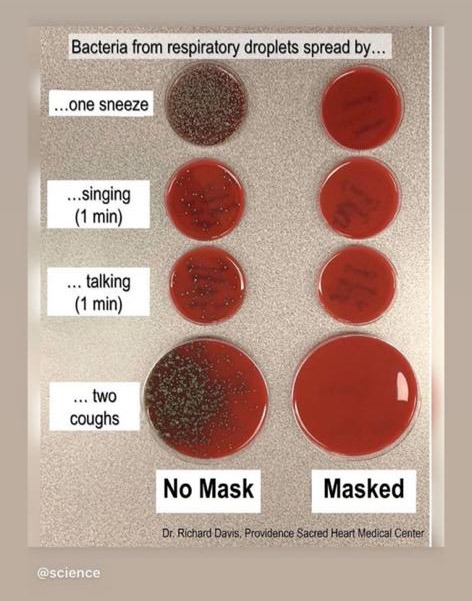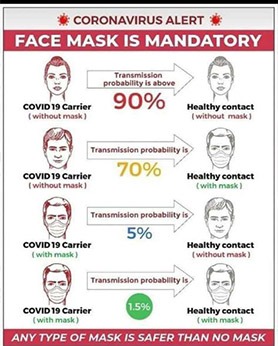New Delhi: The time has come when the citizens have to ensure a face mask just like trousers before leaving the house. If you don’t work in healthcare or certain industries, wearing a face mask on a routine basis might be a new thing for you. Putting on a mask anytime you go out in public can take a bit of getting used to. The Centers for Disease Control (CDC) tells us that yes, face masks are absolutely necessary to slow the spread of COVID-19.
How wearing a mask slows the spread?
The recent studies tell us that many people with coronavirus don’t have any symptoms and that even those who eventually develop symptoms can transmit the virus to others before showing symptoms, the CDC tells us. That means the virus can spread between people who are close to each other when speaking, coughing or sneezing, even if they aren’t showing coronavirus symptoms.

Because of that, the CDC recommends wearing cloth face coverings in public settings where other social distancing measures are difficult to maintain, such as grocery stores and pharmacies.
What if I want to take my chances with catching COVID-19?
Even if you feel this way, think about other people around you. It’s often difficult to tell just by looking at someone whether they’re in a high-risk group, such as people with high blood pressure or diabetes. No one wants to accidentally spread the virus to someone who might have severe complications if they catch it. If you wear a mask and practice social distancing when out in public, you can feel good about knowing you are part of your community’s effort to slow the spread of COVID-19.
Do I need to buy a medical-grade mask?
Cloth face coverings are recommended by the CDC for the general public. Surgical masks or N-95 respirators are important supplies that should be reserved for healthcare workers and other medical first responders.
What works as a cloth face covering?
Cloth masks can be made at home with household items. You can sew them or make masks that don’t require sewing. The CDC had directions on how to make a mask that doesn’t require sewing, using a simple cloth or T-shirt. It also has directions on making a simple mask that you sew at home. Or, treat yourself to a mask made by someone else – many crafters and online stores are selling masks in all sorts of fun prints and patterns.

How do I know if my face mask is appropriate?
Ask yourself if your mask passes these tests, from the CDC:
Cloth face coverings should:
- Fit snugly but comfortably against the side of the face
- Be secured with ties or ear loops
- Include multiple layers of fabric
- Allow for breathing without restriction
- Be able to be laundered and machine dried without damage or change to shape
When removing your face covering, make sure you don’t touch your eyes, nose or mouth. You should always wash your hands after removing your face covering. And make sure to wash and dry your masks regularly.
The CDC recommends that anyone over the age of 2 wear a face mask if you anticipate coming in contact with others. Those under the age of 2, people who have difficulty breathing, anyone who would have trouble taking the mask off by themselves, or anyone who is unconscious or incapacitated should not wear a face mask to avoid suffocation.
Wearing face masks may take a little getting used to, but they are worth the minor inconvenience, knowing they can help members of our community stay healthy.

